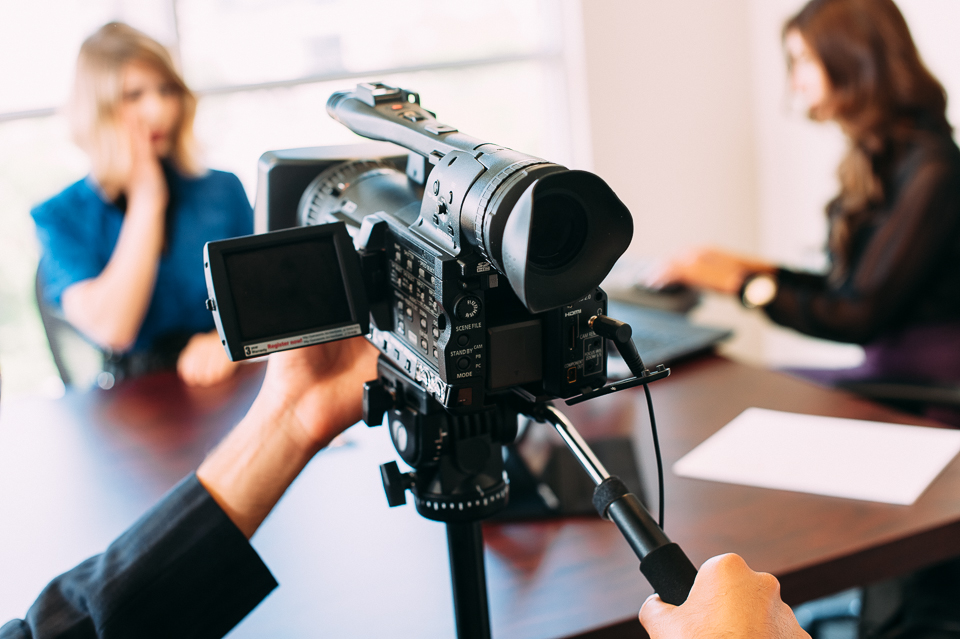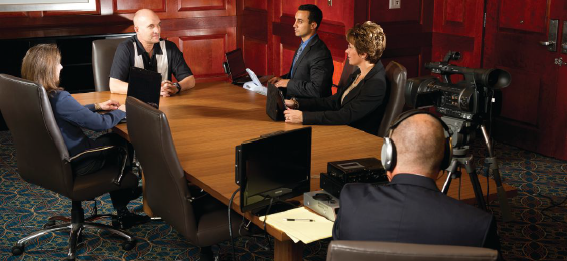Full-Service Legal Videography for Recording Legal Proceedings.
Full-Service Legal Videography for Recording Legal Proceedings.
Blog Article
The Role of Lawful Videography in Depositions and Tests
Lawful videography has actually arised as a crucial tool in both depositions and trials, supplying a multifaceted approach to recording witness testaments. By recording not just the spoken word however also the subtleties of non-verbal communication, this medium improves the reputation of testaments and preserves crucial evidence for future procedures (legal videography). As lawyers progressively recognize its worth, it prompts a deeper assessment of just how these aesthetic documents can influence juror perceptions and trial outcomes. What implications might these developments hold for the future of lawful practice?

Significance of Lawful Videography
Lawful videography plays an essential role in the documents and discussion of depositions and trials. This customized field integrates technical skills with legal knowledge to create a trustworthy record of process that can significantly affect situation results. The appearance of legal videography enhances the understanding of witness testimony, permitting jurors and courts to observe not only the talked words yet also the temperament, feelings, and body movement of the witnesses.
Furthermore, legal videography supplies an objective account of events, minimizing the capacity for misconception that can accompany composed records alone. This aesthetic documentation works as an essential device throughout test discussions, assisting in a more clear and even more convincing story for both complainants and offenders. Moreover, the ability to replay video sections throughout court procedures makes it possible for legal groups to emphasize bottom lines, strengthening their debates successfully.
The relevance of lawful videography extends beyond the courtroom; it also plays an important duty in maintaining evidence for future referral, whether for appeals or further legal action. Its combination into the legal procedure is essential for guaranteeing a fair and exact depiction of the truths, eventually contributing to the quest of justice.

Process of Legal Videography
While catching the subtleties of depositions and trials, the process of legal videography includes several critical steps that ensure top quality, exact recordings. At first, a professional legal videographer prepares by evaluating the instance products and recognizing the details demands of the deposition or trial. This preparation includes acquainting themselves with the participants and the context, which aids in capturing relevant information.
On the day of the recording, the videographer sets up the necessary equipment, which typically consists of high-def cameras, microphones, and proper lights. Guaranteeing optimum angles and sound top quality is vital, as it straight impacts the efficiency of the recording. The videographer interacts with lawyers and individuals to develop protocols, guaranteeing that everybody understands the recording process.
Throughout the deposition or test, the videographer diligently tapes the process, paying very close attention to both spoken and non-verbal cues. This includes catching the behavior and reactions of witnesses and lawyers. After the session ends, the videographer may linked here modify the video for quality and conformity with legal criteria, producing a last item that properly reflects the procedures for future referral and usage in legal contexts.
Advantages in Depositions
The consolidation of videography in depositions offers numerous benefits that enhance the overall procedure of gathering evidence. One main benefit is the capability to record witness statements with aesthetic and acoustic fidelity, providing an extra exact representation of the witness's temperament, tone, and body language. This multidimensional approach permits lawyers and juries to analyze reputation much more successfully than standard written transcripts alone.
Furthermore, videographed depositions serve as an effective tool for protecting testament. Should a witness become inaccessible for test, their taped deposition can be played in court, you could try these out guaranteeing that their proof continues to be easily accessible and appropriate. This element dramatically decreases the risk of losing important details that can impact instance outcomes.

Finally, videography improves the overall professionalism of the deposition procedure, instilling confidence in clients concerning the thoroughness of their legal depiction (legal videography). By leveraging technology, lawful specialists can significantly enhance the effectiveness of depositions
Influence On Tests
In many trials, the integration of videography can significantly influence the discussion of proof and the court's assumption. Legal videography catches witness testaments and vital evidence in a dynamic layout, enabling jurors to engage with the material on several levels. This visual part boosts the narration aspect of a trial, providing context and emotional vibration that traditional text-based proof might do not have.
Moreover, video clip recordings can act as effective tools for impeachment during interrogation. When disparities emerge in between a witness's previous statements and their court room testament, video evidence gives an objective reference that can persuade jurors' viewpoints. This immediacy and clarity can bolster the trustworthiness of a party's narrative while at the same time undermining opposing debates.

Future Trends in Legal Videography
As we look toward the future of legal videography, several arising patterns assure to improve its duty within the court. One considerable pattern is the integration of expert system (AI) in video evaluation and editing. AI can streamline the process of identifying crucial moments in videotaped depositions, allowing attorneys to quickly access appropriate web content, thus boosting effectiveness in instance preparation.
Furthermore, the rise of digital fact (VR) and boosted truth (AR) modern technologies is expected to change how jurors experience evidence. legal videography. By immersing jurors in a simulated environment, these modern technologies can offer a much more extensive understanding of intricate situations, leading to more enlightened deliberations
Moreover, the boosting demand for remote depositions, accelerated by the COVID-19 pandemic, will likely proceed. Legal videographers will need to adapt to brand-new software and systems to make certain high-quality recordings in virtual settings.
Finally, the expanding emphasis on information safety will necessitate stricter procedures for storing and sharing video proof. As the legal landscape develops, lawful videographers have to stay abreast of these trends to keep their significance and performance in the judicial process.
Final Thought
In summary, lawful videography offers an important feature in the judicial procedure, boosting the stability of depositions and trials. As innovation proceeds to progress, legal videography is positioned to more change its function within the legal landscape.
Report this page